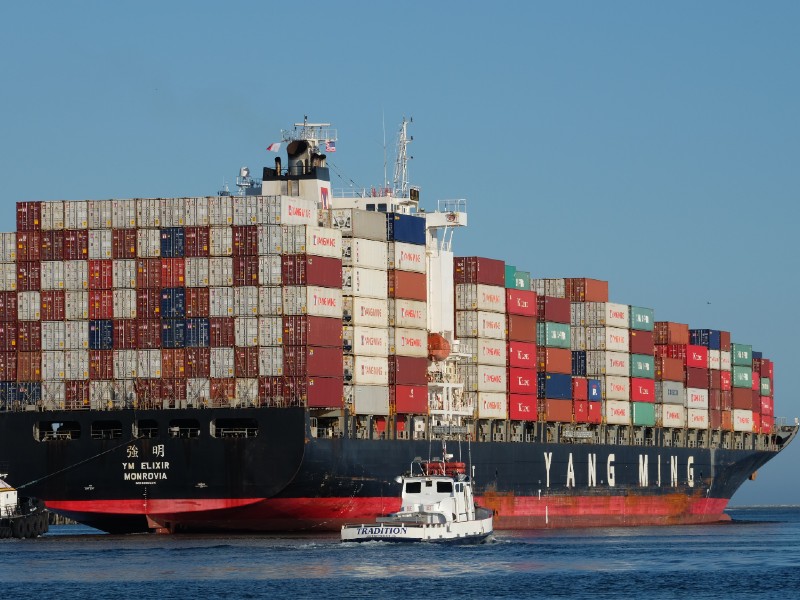ICTN: A Catalyst to a Robust Trade Facilitation System

Dr Pius Akutah Akuyima, Executive Secretary/CEO, Nigerian Shippers Council
The much-anticipated concept of International Cargo Tracking Note (ICTN) is undoubtedly a tool that is expected to advance the course of a robust Trade Facilitation System if well harnessed.
Its emergence is crucial for the need for greater efficiency and transparency in the global supply chain particularly as trade and commerce expanded given that 85 percent of global trade is through the seas
Meanwhile, the Executive Secretary/CEO, Nigerian Shippers’ Council, Dr. Pius Akutah and his management team have continued to live up to the billing in the council’s status as a virile Economic Regulator, as they continued to churn out mechanism for seamless operational efficiency to trading in the maritime and transport corridors.
Akutah avowed commitment to the implementation of ICTN and a full automated paperless operation as part of measures to enhance trade facilitation and ultimately boost Federal Government’s revenue have continued to receive wide range commendations from industry watchers and the international community.

He has at several foras hinted on the several trade and economic benefits inherent in the implementation of the long awaited ICTN in the country, which he said in addition to simplifying trade procedures in the country, the ICTN scheme would boost revenue for the government and ultimately boost national Gross Domestic Product GDP.
According to him, the NSC is determined to make contributions to the development and implementation of a National Policy on Marine and Blue Economy.
… BRIEF NOTE ON ICTN:
International Cargo Tracking Note (ICTN) is an electronic system, a technology designed to ensure the traceability of goods across international borders, by assigning a unique identification number to each shipment, and it is therefore a tool to enhance trade globally.
This mechanism enhances visibility and accountability in the shipping process, reducing opportunities for fraud, smuggling, and theft, particularly in monitoring daily crude oil exports, importation of illicit drugs and arms into the country amongst other infractions.
ICTN facilitates Customs clearance procedure by providing real-time updates that alert authorities to any discrepancies in cargo movement, and it was first introduced in 2010 during the Yar’Adua/Jonathan administration.
The intention was to combat illicit imports. But was later abandoned due to fraud allegations and stakeholder resistance/disagreements.
However in 2019, the Federal Government citing the surge in illicit trade importation and the need to align with global standards mandated Nigerian Shippers Council as the Port Economic Regulator to fine tune grey areas and commence the project.
The new ICTN as enunciated by the Executive Secretary/CEO of Nigerian Shippers Council Dr Akutah Pius Ukeyima MON, will bolster Nigeria’s security, enhance the Federal Government’s revenue from seaports, and align with President Bola Ahmed Tinubu’s Renewed Hope Agenda, which essentially is targeted towards the diversification of the economy.
Akutah revealed that ICTN provides accurate and timely cargo information, enabling Customs officials to perform more effective inspections, clear goods faster thereby reducing delays which will further boost the country’s global rating in the maritime sector. One may be tempted to ask; Are there benefits of ICTN to the economy? YES. Globally, ICTN enhances cargo security while contributing to trade transparency.
As a technology, it provides real-time cargo data, reducing smuggling, cargo under-declaration and trade fraud. It equally strengthens the country’s supply chain security by ensuring cargo visibility from the port of loading to the port of destination. ICTN helps in efficient Customs clearance as the system enables pre-arrival processing, allowing Regulatory agencies including Nigerian Customs to assess risks before cargo arrival. This leads to faster clearance time, reduced congestion at ports and lower demurrage costs for traders.
ICTN ensures accurate cargo valuation, preventing revenue loss due to false declarations while blocking financial leakage caused by incorrect customs duties, levies and tariffs.
Furthermore, many countries of the world including advanced economies have successfully deployed ICTN for effective cargo monitoring and for trade regulation. It is imperative to state that Nigeria’s adoption of ICTN aligns with the World Trade Organization (WTO) Trade Facilitation Agreement (TFA) and international maritime security standards. On the topical issue of if ICTN has a legal backing; Again Yes. If we do a retrospection especially on the mandate and role of Nigerian Shippers Council as Port Economic Regulator, it becomes apparent that as a regulator the Council is empowered to introduce mechanisms that enhance trade facilitation.
To put it mildly, ICTN is not a duplication of existing processes but a complementary tool that aligns with Nigeria’s Customs and Port Regulatory network. The technology widely used in other climes streamlines cargo inspection and clearance through automated pre-arrival information. It is therefore important to state here that ICTN is an additional regulatory mechanism, which works in synergy with customs systems to enhance compliance, risk assessment, and trade efficiency. Finally, it has become propitious to inform the “doubting Thomases” in the industry that the new ICTN is not to stifle trade but to support the Federal Government economic and security agenda.
The recent upsurge in arms and drug importation calls for total support by all and sundry. The key benefit of ICTN is to protect Nigerians from drug trafficking, arms smuggling and other contrabands that aid insecurity.
It is for the interest and benefit of the economy, to Nigerians and most importantly to industry stakeholders to embrace the ICTN implementation maximally so as to grow our Marine and Blue Economy.






















+ There are no comments
Add yours